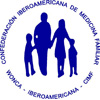Building a scholarly research program for rural and remote family medicine faculty
Resumo
Objetivos: Objectives: (i) To identify and prioritize skills and services that rural/remote faculty need to engage in scholarly research; and (ii) to establish and evaluate a longitudinal faculty development program that promotes scholarship activity and knowledge translation amongst rural/remote faculty.
Metodologia ou Descrição da Experiência: Methodology: This is a mixed-methods, multiphase project comprised of three phases: (I) identifying priority research skills for rural/remote faculty and a knowledge translation process; (II) curriculum design, development and implementation; and (III) program evaluation. Data collection and analysis occurring at all phases follows an iterative process based on andragogy. Findings are based on data collected from a systematic literature review, an environmental scan, key informant interviews with medical scholars and faculty development experts, and a focus group with rural physicians. Needs assessment data were also collected from rural faculty over the duration of project development.
Resultados: Results: Preliminary analyses demonstrate that rural faculty face specific barriers to participating in scholarship, such as reduced access to academic services, limited knowledge and skills in performing scholarly research activities, and lack of time due to busy schedules and work priorities. Two key recommendations that have emerged are: (i) the need for research help and support for family medicine faculty practicing in rural/remote regions, and (ii) the establishment of a provincial research network with local experts providing mentorship and support. Participants also stressed the importance of access to local resources that support engagement in research activities.
Conclusão ou Hipóteses: Conclusions: This study identified and prioritized skills and services that rural/remote family medicine faculty need to build research scholarship. This information will guide the development and implementation of a family development research program for rural/remote faculty, and will require dedicated research support, mentorship, and synchronous and asynchronous learning opportunities.
Palavras-chave
Texto completo:
PDF (English)Apontamentos
- Não há apontamentos.
Este periódico é de responsabilidade das associações:
Apoio institucional:







